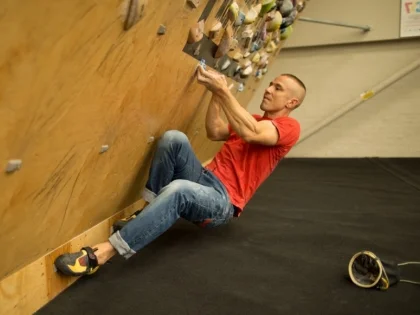Top 5 Ways to Improve Your Public Speaking Skills
Although many people find it difficult, public speaking is a vital skill to learn. You may advance in your career and gain a significant advantage in the workplace by having strong presentation and communication skills.
While practicing in front of a mirror is beneficial, you might get even better results by recording and replaying your presentation. You'll be able to see how your audience perceives you as a result.
1. Perfectionism is attained through practice.

Whether you are speaking in front of a friend acting as your "audience" or to a hypothetical crowd, public speaking demands preparation. It's also beneficial to record your practice sessions, particularly to observe your habits. Do you frequently stutter, move your hands erratically, or use a lot of filler words? Getting that feedback can assist you in breaking these negative habits.
Overusing "um" and "uh" is the most common mistake public speakers make. This disrupts the flow of your speech and draws the audience's attention away from the ideas you are attempting to convey. You can maintain your attention and project confidence by practicing pausing briefly between sentences!
2. Be authentic.

Being an excellent public speaker requires being oneself. Being likeable is crucial to earning an audience's trust when speaking in public, which is a social skill. If you can come across as authentic and real, even if it means that you are not flawless, people will be far more inclined to listen to you.
While some may believe that public speaking is simple, it's one of the most difficult abilities to acquire. While being anxious before a presentation is common, try not to let this anxiety cause you to become someone you are not.
To ward off negative thoughts, engage in anxiety journaling, positive self-talk, and visualisation. Additionally, you can invite a buddy to see your presentation so they can offer you helpful criticism.
3. Be familiar with your subject.

Your most valuable tool, whether you're presenting to a large audience or a smaller group, is your material. You should be well-versed in the subject matter of your talk, as well as any supporting material that will be provided.
Make sure to videotape your presentation in advance and review how you came across it. A friend could also be asked to witness your presentation. Their frank criticism might assist you in identifying your areas of strength and growth.
To effectively illustrate your views and provide visual support, use a PowerPoint presentation. However, avoid overusing text, as this may detract from your major points. As an alternative, consider using a brief outline to interest the audience and stay on topic.
4. Establish eye contact.

Although it might seem obvious, many presenters find it difficult to maintain eye contact. They might not stay in contact with anyone for a sufficient amount of time, instead darting across the room or glancing from person to person. This could result in a boring and robotic presentation. Try having short talks with specific audience members rather than concentrating on the group as a whole.
Before going on to the next person in the crowd, pick someone and keep their gaze for three to five seconds. In addition to making them feel heard, this can prevent people from checking their phones, which is possibly the worst thing they can do when a speaker is giving a speech. Using this strategy will demonstrate your concern for your audience and make your speech feel less like a monologue and more like a conversation.
Lastly, make an effort to alter any unfavourable ideas you may have about public speaking. Rather, imagine a successful outcome and concentrate on how your speech will help your audience. When it's time to give your presentation, this will help you remain composed and concentrated. To gain a better sense of familiarity with the location of your presentation, it is also beneficial to pay a visit.








